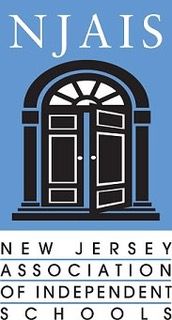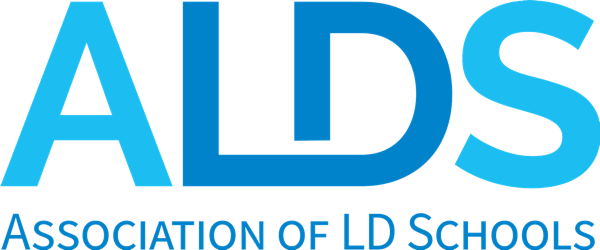Dysgraphia impacts a student’s handwriting and fine motor skills. Impaired ability to reproduce legible and automatic letter and numeral writing. Students with dysgraphia may also struggle with planning and organization.
Here are ways to support students with dysgraphia:
References
Franklin, D. (2018). Helping Your Child with Language-Based Learning Disabilities (Strategies to Succeed in School and Life with Dyscalculia, Dyslexia, ADHD, and Auditory Processing Disorder) (1st ed.). New Harbinger Publications.
International Dyslexia Association (2015). Understanding Dysgraphia Fact Sheet. https://dyslexiaida.org/understanding-dysgraphia/
Students with dyscalculia often struggle with math calculation skills and find difficulty in number representation, number processing, quantifying sets without counting, using nonverbal processes to complete simple numerical operations, and estimating relative magnitudes of sets. Quantitative reasoning may also be impaired for individuals with dyscalculia.
Here are ways to support students with Dyscalculia:
References
Berninger, V. W., Wolf, B. J., & Berninger, V. W. (2016). Dyslexia, Dysgraphia, OWL LD, and Dyscalculia: Lessons from Science and Teaching. Baltimore, MD: Paul H. Brookes Publishing.
Child Mind Institute (2019).How to Spot Dyscalculia. https://childmind.org/article/how-to-spot-dyscalculia/
Auditory Processing Disorder (APD) is an auditory deficit that makes distinguishing sounds challenging. It is not the result of higher-order cognitive, language, or related disorders (ASHA.org).
Students who have been diagnosed with APD, sometimes called Central Auditory Processing Disorder (CAPD) may struggle with one or more of the following:
Here are ways to support students with APD:
References
American Speech-Language-Hearing Association. (2005). (Central) auditory processing disorders.
Understood for All, Inc. (2020). Auditory Processing Disorder: What You Need to Know. https://www.understood.org/en/learning-thinking-differences/child-learning-disabilities/auditory-processing-disorder/understanding-auditory-processing-disorder
Attention-deficit hyperactivity disorder (ADHD) is a specific developmental disorder comprising deficits in behavioral inhibition, sustained attention and resistance to distraction, and the regulation of one’s activity level to the demands of a situation (hyperactivity or restlessness).
There are three types of ADHD:
Some scholars view ADHD as a disorder of self-regulation or executive functions rather than an order of disruption.
Here are ways to support students with ADHD:
References
Attention Deficit/Hyperactivity Disorder Fact Sheet. LD Online. Retrieved from http://www.ldonline.org/article/Attention_Deficit/Hyperactivity_Disorder_Fact_Sheet
Brown, T. E. (2005). Attention deficit disorder: The unfocused mind in children and adults. New Haven, CT: Yale University Press.
Visual memory weakness – the word is not sticking. A traditional learner would need to see the word at least 12 times for it to be a part of their automatic response. The struggling reader needs to be exposed to the word as many times as possible. There needs to be automaticity and fluency in order for the word to become a part of the child’s lexicon.
Most spelling lists are based on rote visual memory. With enough practice the student can hold on to the image similar to a crash course of study but that image is only held in memory for the short term. A child cannot spell better than he reads; reading and spelling should be linked. The more meaningful and connected you can make the image, the greater chance of retention.
Students are wedded so much to the print and decoding the word that no more energy is left to make the picture. These students need strategies not only to improve word attack but reading fluency. Until they develop a reading rhythm or prosody they will be unable to make “the picture.”
Students with weak receptive and / or expressive language skills have very vague pictures and need to be taught how to make a more vivid movie – how to “visualize”.
Fractured programs that are not integrated through the curriculum or school day. The intensity of the program is not there
“We use a little bit of this and a little bit of that”.
“It’s Orton-like”.
“He has Wilson Reading 1/2 hour a day” are common scenarios.
The programs were not designed to match the learner. Testing should drive the IEP which should drive the PROGRAM. Instead, the child gets what the school has as far as the program no matter what the need is.
Very important to remember that no one ever grows out of a learning disability but if given the appropriate tools, will be successful, giving the appearance of “growing out” of it. The tools necessary require direct instructions. It cannot be assumed that the child will pick them up incidentally; otherwise he would have already.
A child who shows significant language delays or difficulties may be considered at risk. Children who have had early onset learning issues, i.e. chronic ear infections, may be at risk. Children who struggle with rhyming, are slow to learn the connection between letters and sounds, unable to recall the right word, slow to add new vocabulary words, unable to follow multi-step directions are at risk. In order to have reading success, these prerequisites must be in place. If children who are struggling with reading get effective phonological training in kindergarten and first grade, they will have significantly fewer problems learning to read at grade levels than do children who are not identified or helped until third grade.
For more information on ways of giving or to make a donation online you can clicking here.





